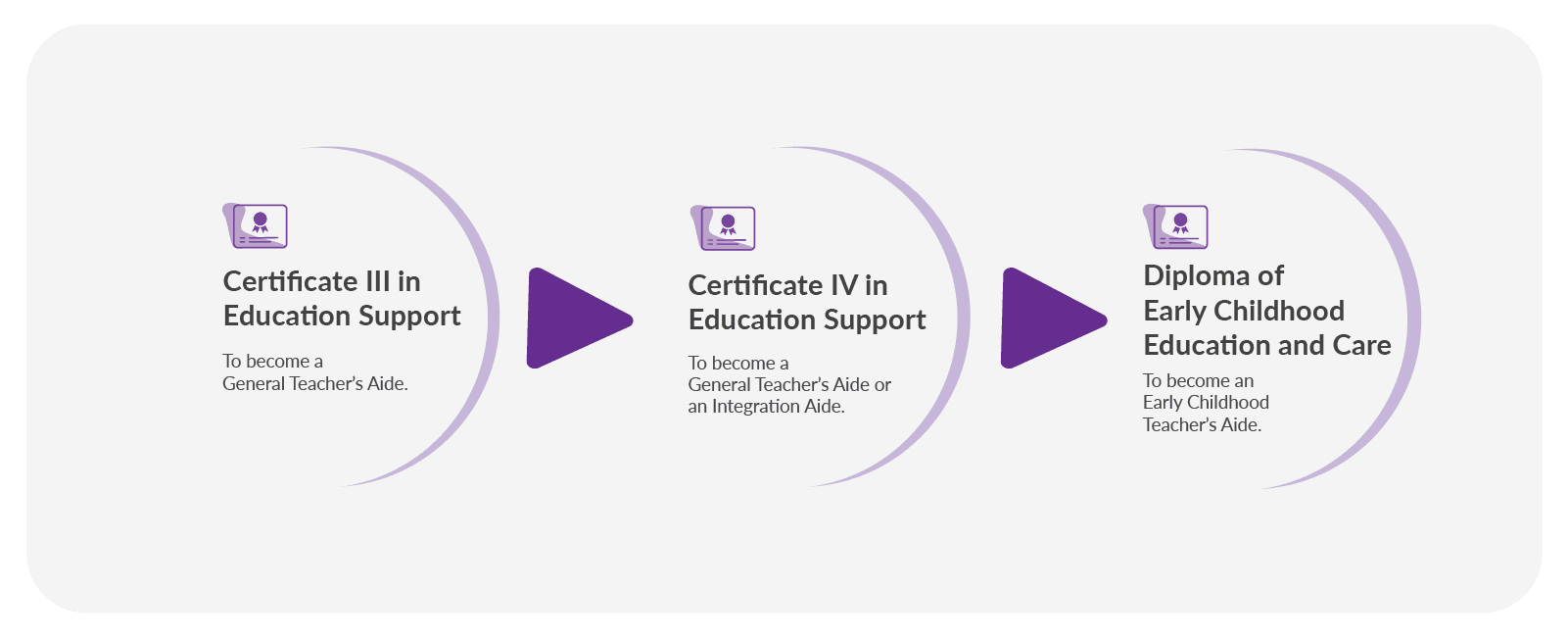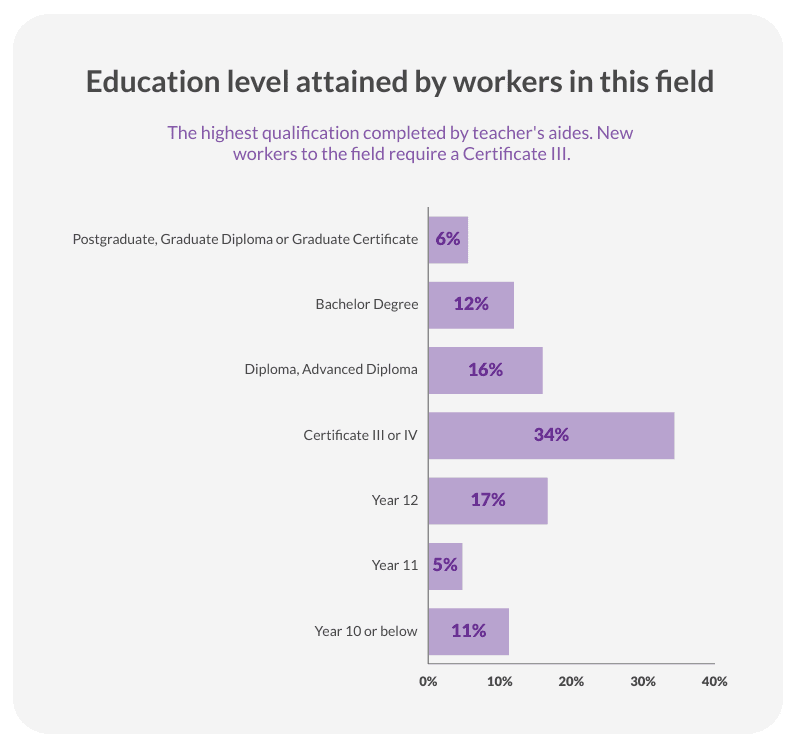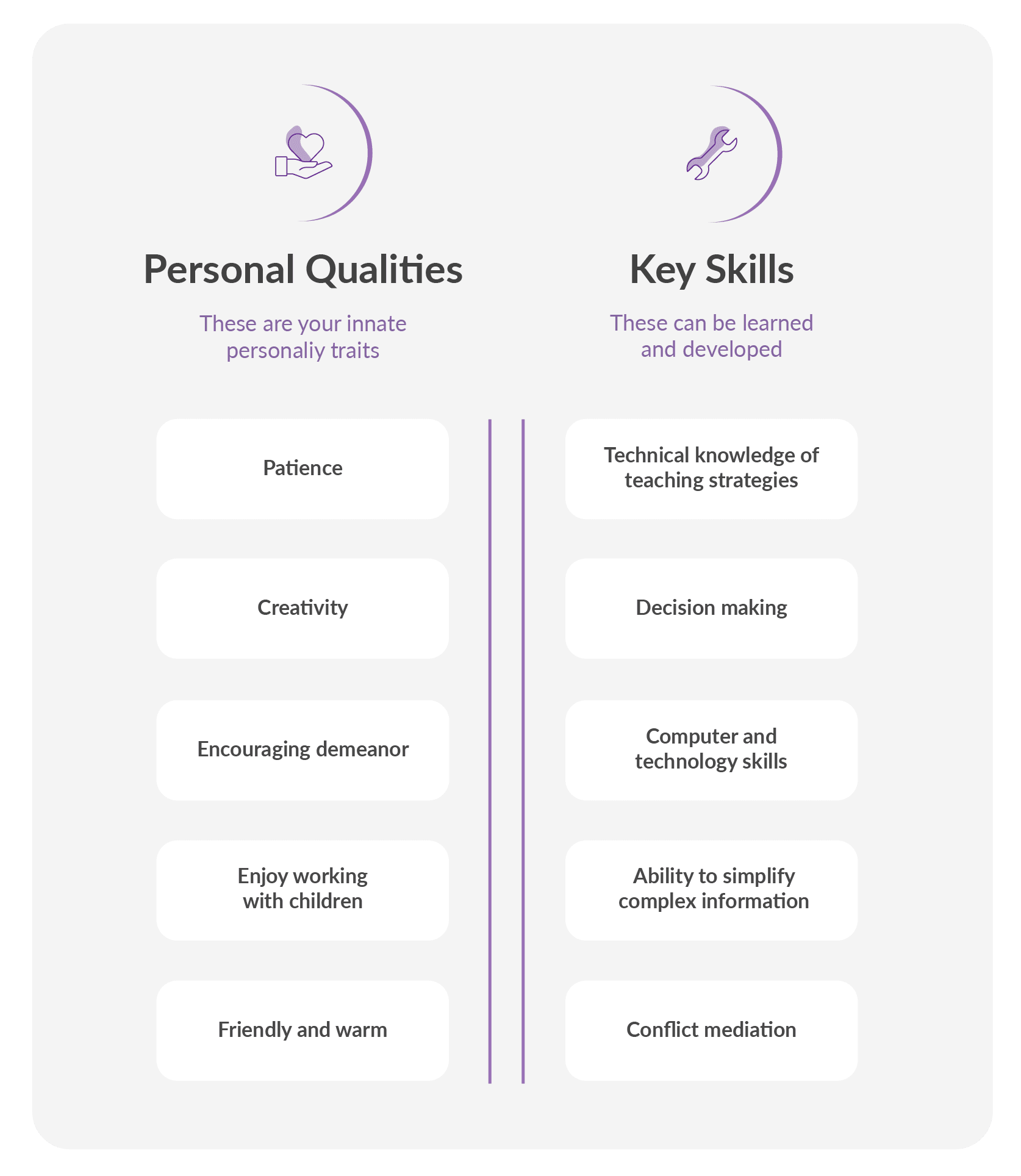How to Become a Teacher Aide: Everything You Need to Know

Working as a teacher’s aide is an incredibly rewarding experience where you’ll support the development of children during their education journey. By working closely with children and young people, you play a vital role in fostering their growth, wellbeing, and learning outcomes. And, the teachers you work with will also find your support invaluable as you relieve some of their stress.
Ready to discover the steps you can take to get qualified, prepare for your new role, and start your career?
Benefits of being a teacher's aide
1. You make a meaningul difference
Working as a teacher aide offers a unique opportunity to make a meaningful difference in the lives of students and the broader school community. By providing essential support to the classroom teacher, teacher aides help create an environment where all students, including those with specific learning needs, can thrive.
2. Job satisfaction
A career as a teacher aide also brings a strong sense of job satisfaction and fulfilment. You become an integral part of the education sector, collaborating closely with teachers, students, and other school staff. This teamwork fosters a sense of belonging and community within the school environment.
3. Flexible work
Flexibility is another key benefit of the role. Many teacher aides appreciate the ability to balance work with personal commitments, making it an attractive option for those seeking a stable yet adaptable career in education. Additionally, the role offers ongoing opportunities for professional development, allowing you to continually develop your skills and progress within your career.
Ultimately, being a teacher aide is about making a positive difference, supporting students, assisting teachers, and contributing to the success of the entire classroom.
How to become a teacher's aide: A step-by step guide
1. Decide what type of teacher's aide you want to become
Teacher’s aides work with diverse people, supporting students from various backgrounds and collaborating with other students and staff within the school community. Here are the different types of teacher’s aides that vary slightly in their focus or specialisation.
General teacher’s aide
This type of education support worker is generally hired by schools to help assist school teachers with the day-to-day running of a classroom. Often, they find themselves assigned to classes with children who have trouble concentrating, need extra help due to physical or intellectual special needs, or who have English as a second language.
As a general teacher’s aide, you can work with a range of ages from Prep to high school-aged. Those who prefer to work with older children may also look into youth work, as this career path provides support to children in a more informal education setting.
Integration aides
Integration aides are very similar to general teacher’s aides but have a more significant focus on children with special needs, such as those who may have any intellectual, social or physical issues.
Integration aides can work with a wide range of children from those who have Autism Spectrum Disorder, Down’s Syndrome or those who have unpredictable behavioural patterns. Depending on a school’s funding, these types of aides are required on a ‘needs basis’ for special education support.
Early childhood teacher’s aides
These types of teaching assistants work specifically with preschool-aged children (generally five years and under), so enjoying working with young children is a must!
Preschool teacher’s aides assist with classroom activities such as story-time and art projects to ensure the lead teacher has time to complete any necessary paperwork and just generally have a break.
2. Choose your teacher aide course
Choosing a qualification can be tricky because there are a few education pathways available, and each will qualify you to provide different levels of care. At a minimum, you’ll need a Certificate III in Education Support to get your foot in the door, but there are a couple of other qualifications that can lead you down even more rewarding avenues.
Certificate III in Education Support
The CHC30221 Certificate III in School-Based Education Support is an entry-level qualification for teacher aides in Australia.
In this course, you’ll learn about the basics of classroom-learning and how to work under the direct supervision of a teacher. Your learning and skills development in this qualification will be centred around working effectively in a mainstream classroom.
The duration of this course can vary, with some courses allowing up to 2 years for completion.
This is a good qualification if you’re keen to start your career in a mainstream classroom as a general teacher’s aide.
Certificate IV in Education Support
The CHC40221 Certificate IV in School-Based Education Support is a higher-level qualification that prepares teacher aides for more autonomous roles.
In this qualification, you’ll learn all the basics covered in the Cert III, with the addition of skills development for working with special needs students. This includes students with autism, physical disabilities, learning disorders and significant behavioural issues. This qualification is definitely favoured by schools, as most of the work of teacher’s aides is centred around helping students with special needs.
You’ll find that this qualification will open a lot more doors for you, and you’ll be able to work as an integration aide or a general teacher’s aide in a much wider range of schools, including special education schools.
Diploma of Early Childhood Education and Care
The CHC50125 Diploma of Early Childhood Education and Care
prepares you to work in a vast range of early childcare roles. You’ll learn the skills required to care for and support preschool-aged children (zero to six years old), and how to deliver education programs for children.
This qualification is crucial if your goal is to become an early childhood educator or assistant, where you’ll be able to work in early childcare centres, like kindergartens.
Payment options & RPL
There are flexible, accessible options to help you get started with your course. Payment plans are available for most courses, allowing you to pay in instalments—with no added costs—so you can study without financial stress. If you’re eligible, you may also be able to access Fee-Free TAFE, a government initiative that covers some or all of your course fees. Plus, if you already have relevant experience in education support, you could fast-track your qualification through Recognition of Prior Learning (RPL), helping you save time and start your career sooner.
3. Complete your practical placement
Most courses require at least 100 hours of supervised work placement in a school environment. This is your chance to apply your skills, build confidence, and gain valuable on-the-job experience under the guidance of experienced educators.
Placements typically run for around 10 weeks, with students attending 2 days per week, though exact timing may vary based on the course provider and school availability.
To graduate and become job-ready, you must successfully complete all required hours and meet your course assessment criteria.
4. What you’ll need to get hired as a teacher’s aide
To successfully land a job as a teacher’s aide, it’s important to have the right qualifications, checks, and supporting documents in place. Most employers will expect you to have:
- A Certificate III or IV in Education Support (nationally recognised)
- A valid Working with Children Check (WWCC)
- A First Aid Certificate (HLTAID012 is often preferred or required by schools)
- A current criminal history record (often required during hiring)
- A professional resume tailored to education support roles
These credentials show that you’re fully prepared to support student learning in a safe and inclusive classroom environment. Once you’ve completed your training and practical placement, having these requirements ready will give you the confidence to apply for teacher’s aide roles across both primary and secondary schools.
Note: It’s essential to keep all your certificates and documentation well-organised and clearly labelled, as schools may request to see them during the hiring process. Proper documentation, including your First Aid Certificate (HLTAID012), can be crucial for career progression and meeting employer requirements.
Key skills and qualities of a great teacher’s aide
To thrive as a teacher’s aide, you’ll need a blend of practical skills and personal qualities that support student learning and create a positive classroom environment.
Essential skills include:
- Strong communication (both verbal and written) to engage with students, teachers, and support staff
- Organisational and time management skills to handle multiple tasks efficiently
- Adaptability to respond to changing classroom needs and student behaviours
- Confidentiality and discretion when handling sensitive information
Standout qualities:
- Patience and empathy—especially when working with students who need extra support
- A genuine passion for helping students learn and grow
- A collaborative mindset, working closely with teachers to implement learning strategies
As the education sector evolves, ongoing learning is key. Continuing to upskill and gain classroom experience will ensure you stay job-ready and equipped to make a lasting impact in your role.
Career pathways and advancement
A career as a teacher’s aide offers a range of pathways for professional growth and advancement within the education sector. With experience and further study, teacher’s aides can progress to more senior positions, such as a school learning support officer or education support worker, where they may take on greater responsibility in supporting students with additional needs.
For those interested in early childhood education or working with students with special needs, additional training and certifications can open doors to specialised roles. For example, completing a Certificate IV in School Based Education Support can qualify you for positions that involve more complex support services or leadership within the classroom.
Some teacher’s aides choose to pursue further study, such as a diploma or bachelor’s degree in education, to become a qualified teacher. This pathway allows you to build on your practical experience and transition into teaching roles, making a broader impact on student learning.
By continually developing your skills and knowledge through ongoing training, you can expand your career options and contribute even more significantly to the education and support of young people in schools.
Teacher’s aides are critical to the Australian education system. It’s these individuals who support our teachers and children who may need extra attention throughout their education journey.
If you’re good with kids, have excellent social skills and are patient, becoming a teaching assistant is the right career move for you!
Browse Results
Diploma of Counselling
There is a growing need for people who can offer support services to adults and teenagers who may need support and guidance. If you have the desire to help people lead a happier life to reach their full potential, a career as a professional Counsellor...

Diploma of Nursing
Build a meaningful career that makes a difference with the HLT54121 Diploma of Nursing. This nationally recognised qualification provides the essential skills, knowledge, and practical training needed to become a qualified Enrolled Nurse in Australia....


Graduate Diploma in Management
The Graduate Diploma in Management is an online postgraduate qualification that is ideal for busy senior managers, with a potential entry pathway through any of our Graduate Certificates and study that is highly supported, fits into your schedule, and...

Graduate Certificate in Management
The Graduate Certificate in Management is an online postgraduate qualification that is designed for newer and ambitious professionals, with entry possible through management experience alone and a study structure that easily accommodates full-time work...

Certificate III in Community Services (WA Only)
The Certificate III in Community Services is perfect for entry level community services workers who support individuals through the provision of person-centred services. Work may include day-to-day support of individuals in community settings or suppor...

Bachelor of Health Science (Clinical Nutrition)
Clinical nutritionists integrate traditional food wisdom and current scientific evidence to motivate individuals and communities to eat well and live healthier lives. The Bachelor of Health Science (Clinical Nutrition) is supported by a strong underpin...

Bachelor of Health Science (Naturopathy)
Naturopathy is a whole medical system combining theory (philosophy and principles) and practise that uses an array of natural therapies to support healing and maintain health. Naturopaths aim to treat the underlying causes of illness and disease. The c...

Certificate III in Community Services (Perth Only)
Are you a natural when it comes to providing guidance to people? Would you like to kick start a career in Community Services? The Certificate III in Community Services (CHC32015) is the perfect entry-level qualification for prospective Community Servic...
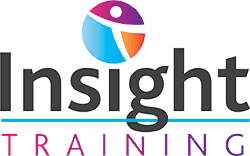
Certificate III in Individual Support (Ageing OR Disability) (Perth Only)
If you have a passion for helping those most in need, this qualification is one way you can utilise your knowledge for the benefit of others. Package the Certificate III in Individual Support (Ageing or Disability) (CHC33021) to save time and gain know...

Certificate lll in Early Childhood Education & Care (Perth Only)
If you love working with children and want to learn more about providing quality education and care in a range of environments, this course is for you. The Certificate lll in Early Childhood Education and Care (CHC30121) can provide you with an entry-l...

Certificate III in Individual Support (Disability) (SA Only)
The Certificate III in Individual Support (Disability) is designed to equip you with the practical skills and knowledge to support people living with disability in a variety of care settings. With a focus on person-centred support, you’ll learn how to...


Certificate III in Non-Emergency Patient Transport (VIC Only)
Our Promise We are confident in the delivery of our training. On successful completion of the course, graduates will be guaranteed a telephone interview for vacant Patient Transport Officer positions in the Non-Emergency Patient Transport division. So...
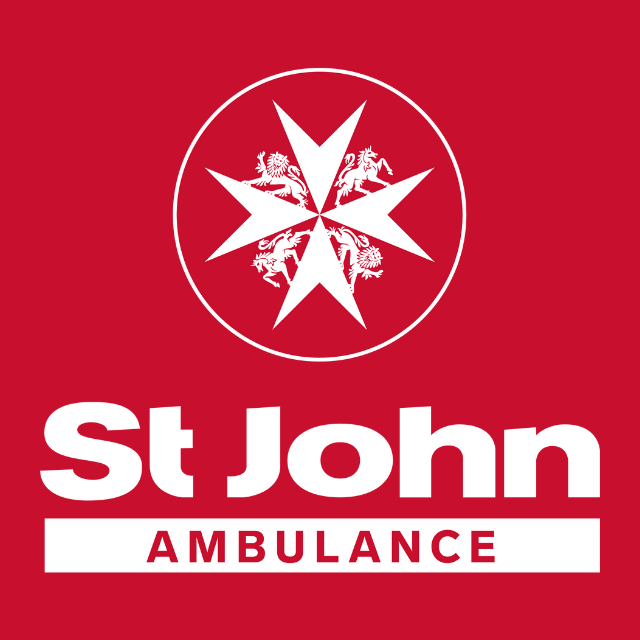
Diploma of Community Services (Perth Only)
The Diploma of Community Services qualification reflects the roles of community services, case management and social housing workers involved in the managing, co-ordinating and/or delivering of person-centred services to individuals, groups and communi...

Certificate IV in Business (Perth Only)
This qualification is suited to those working as administrators and project officers. In this role, individuals use well-developed skills and a broad knowledge base to apply solutions to a defined range of unpredictable problems and analyse information...

Certificate III in Process Manufacturing (Perth Only)
The Certificate III in Process Manufacturing is designed for those working or looking to work in production, warehousing, or factory roles. This hands-on course equips you with the practical skills needed to operate machinery, follow safety procedures,...

Certificate III in School-Based Education Support (Perth Only)
Are you interested in becoming a teacher’s aide? Work with teachers to create a comfortable and supportive environment for children’s learning. You will ensure lessons run smoothly while also developing the student’s literacy, numeracy and resear...

Certificate III in Allied Health Assistance (Perth Only)
A Certificate III in Allied Health is your entrance into the world of health services! This course will teach you to support workers in a range of fields such as audiology to social work. You will use your qualification to gain an entry-level job in ei...

Certificate III in Individual Support (Perth Only)
This qualification is for those who want to work in the community or in a residential setting, following a customised plan to give person-centred assistance to individuals who may need it due to ageing, disability or other circumstances. Work involves...

Certificate III in Allied Health Assistance (Perth Only)
Are you interested in entering the health services industry? This nationally recognised qualification will allow you to enter into one of the most rewarding and enjoyable careers! When studying this course, you will gain knowledge in a range of fields...

Bachelor of Health Science (Acupuncture Therapies)
Acupuncture is a branch of Chinese Medicine that stimulates specific points on the body to regulate the flow of Qi (vital energy) to restore health and balance the functions of the body, mind and spirit. Acupuncture therapies combines Chinese medicine...

